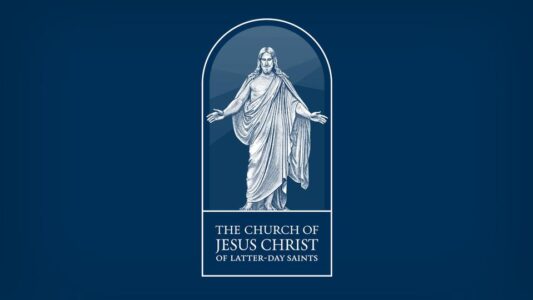SALT LAKE CITY (AP) — The Church of Jesus Christ of Latter-day Saints added new language to the faith’s handbook Friday imploring members to root out prejudice and racism, adding significance and permanence to recent comments by top leaders on one of the most sensitive topics in the church’s history.
The faith’s past ban on Black men in the lay priesthood, which stood until 1978, remains a delicate issue for members and non-members alike. The church disavowed the ban in a 2013 essay, saying it was enacted during an era of great racial divide that influenced the church’s early teachings, but it never issued a formal apology — a sore spot for some members.
Racial injustice has since surged to the forefront of global consciousness following the police killing of George Floyd, a Black man, in Minnesota that led to widespread protests this summer.
In the handbook from the Salt Lake City-based faith, the new section on prejudice echoes advice in a string of speeches by top leaders this year, reminding 16 million members around the globe that a person’s standing with God depends on devotion to the commandments, not the color of their skin.
“The church calls on all people to abandon attitudes and actions of prejudice toward any group or individuals,” it said. “Members of the church should lead out in promoting respect for all of God’s children.”
It notes that prejudice can be based on “race, ethnicity, nationality, tribe, gender, age, disability, socioeconomic status, religious belief or nonbelief, and sexual orientation.”
Including a strongly worded edict in the handbook gives the message more gravity because the document is considered the law within the church, Mason said. Younger members especially will be thrilled because they want the church to be proactive about addressing racism due to the faith’s history, he said.
The church grew more diverse in 2018 when it selected the first-ever Latin American and person of Asian ancestry to an all-male top governing panel. But there are still no Black men on the panel. Black members make up a tiny percentage of church membership.
The handbook changes also include a new warning to rely on credible information and avoid sources that promote “baseless conspiracy theories.”
The new section instructs members to seek out and share only “credible, reliable, and factual sources of information.” It warns against unreliable sources that try to promote “promote anger, contention, fear, or baseless conspiracy theories.”
That section appears to be driven by some church members promoting baseless claims about fraud in the presidential election or scoffing at the notion that masks help prevent the spread of COVID-19, Reeve said.
“It certainly speaks to the current moment we are in,” Reeve said.








